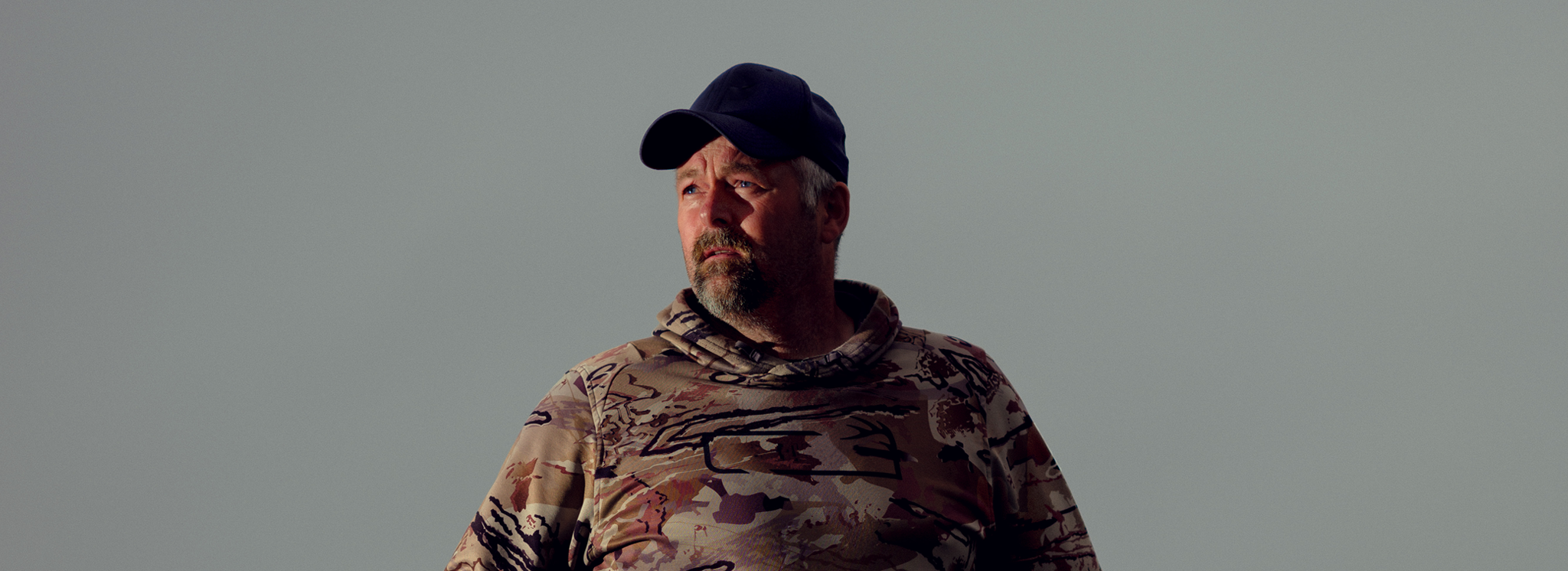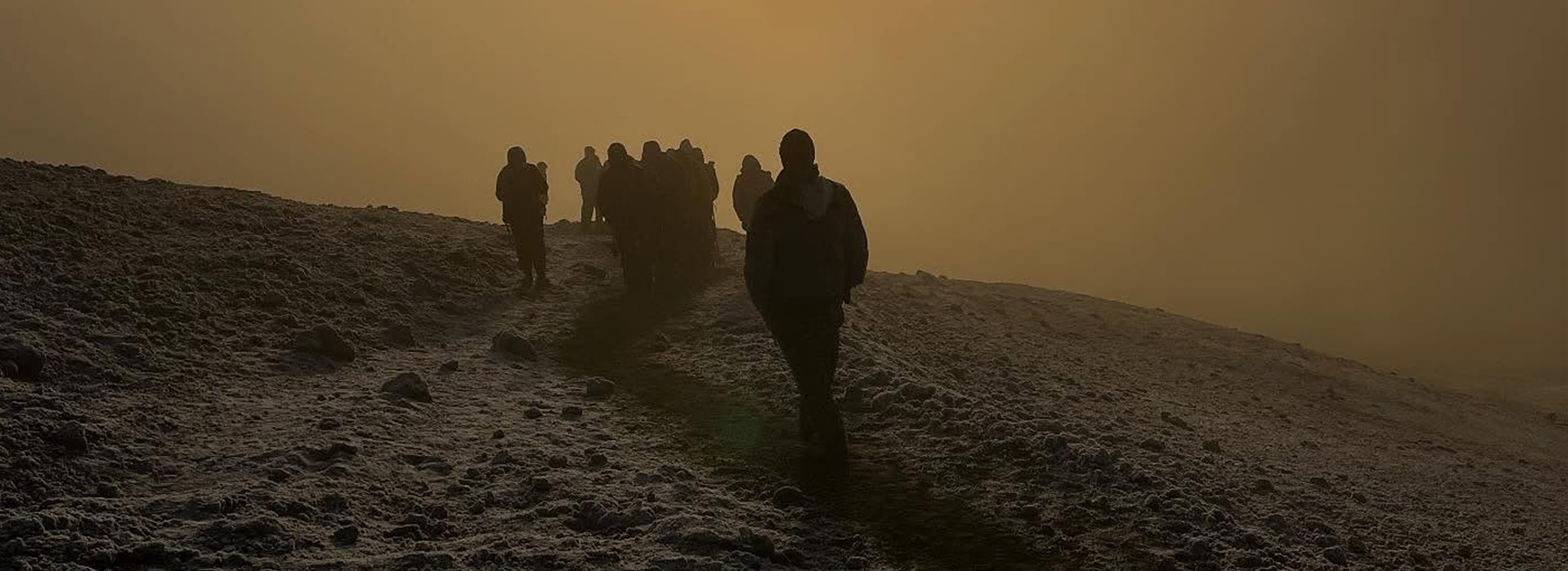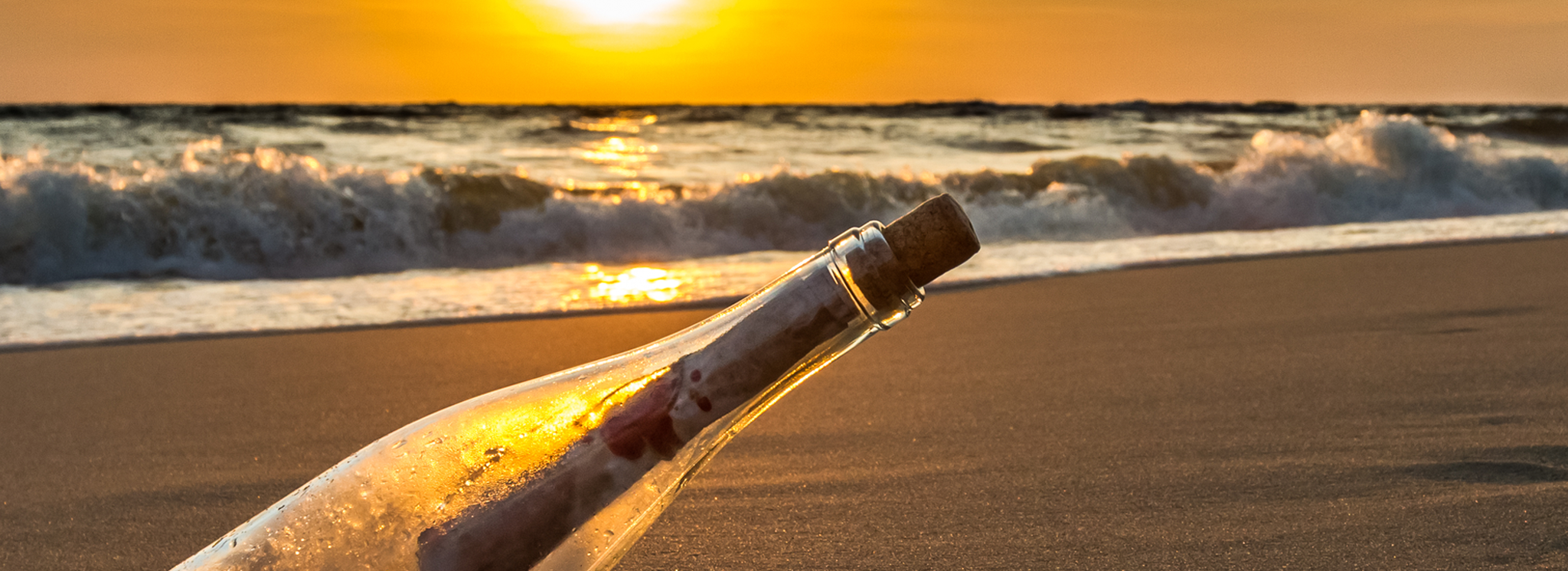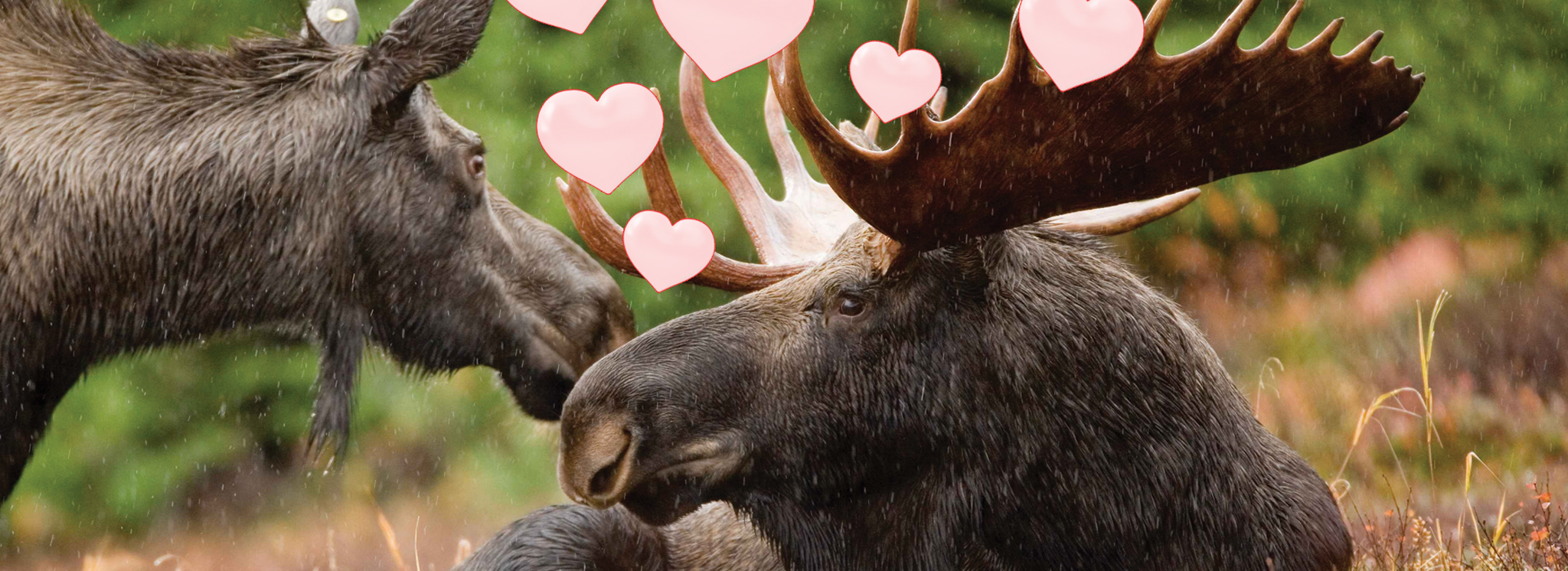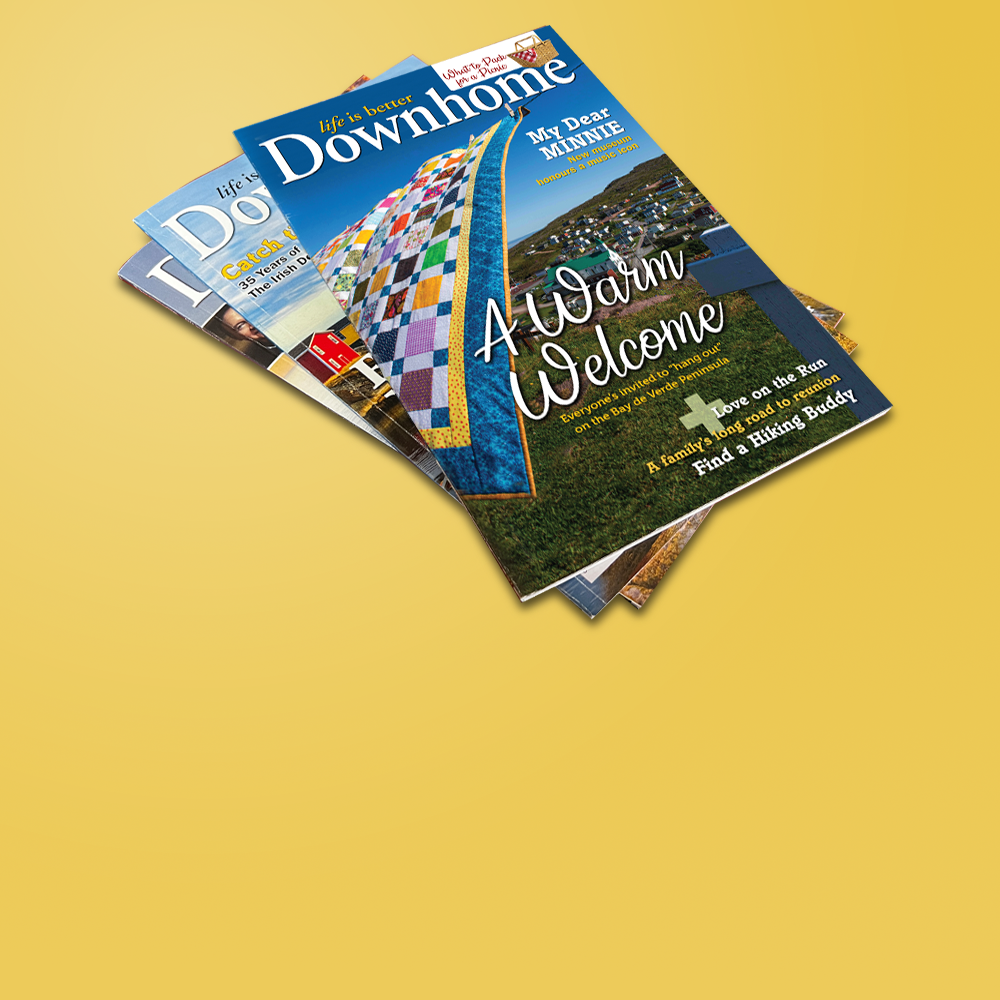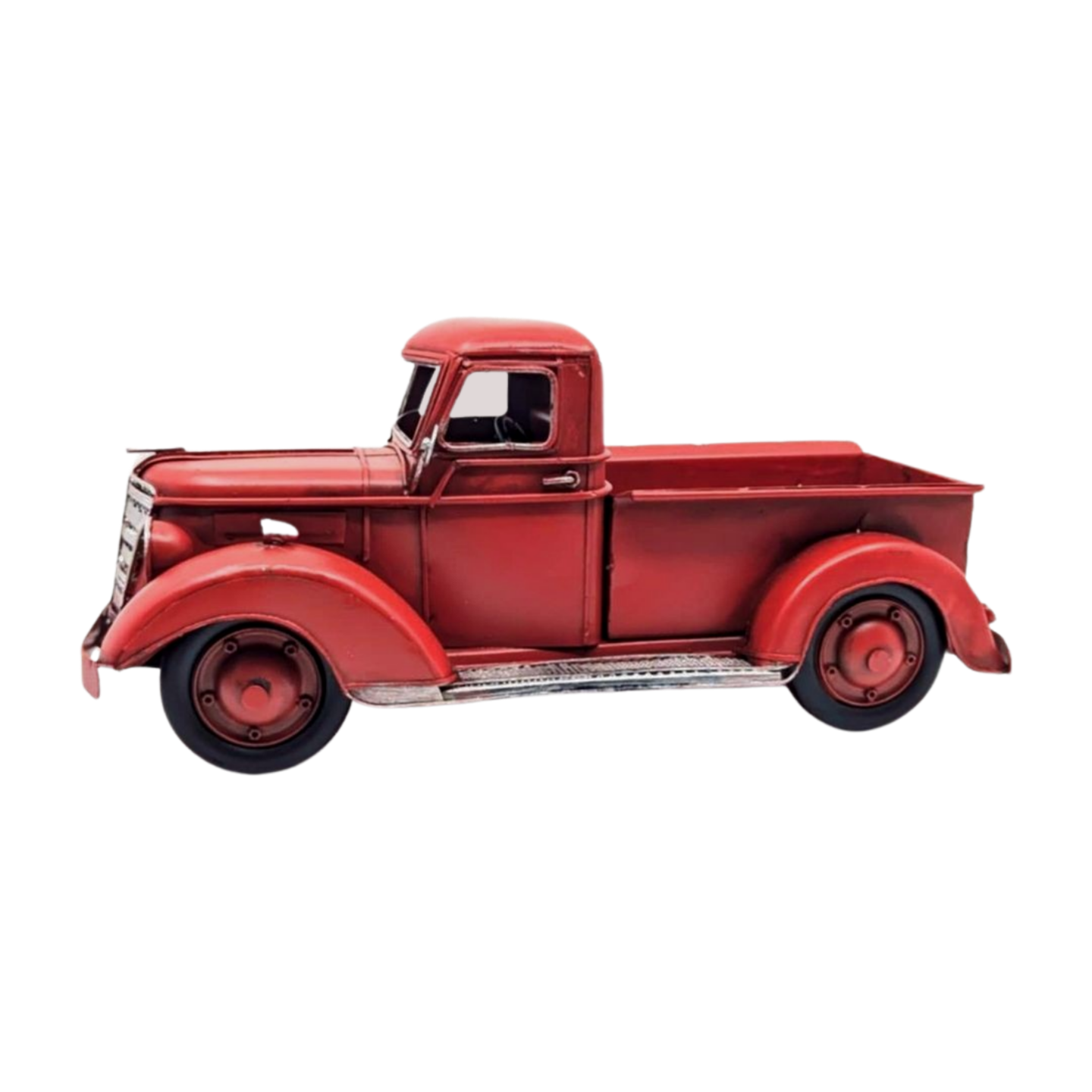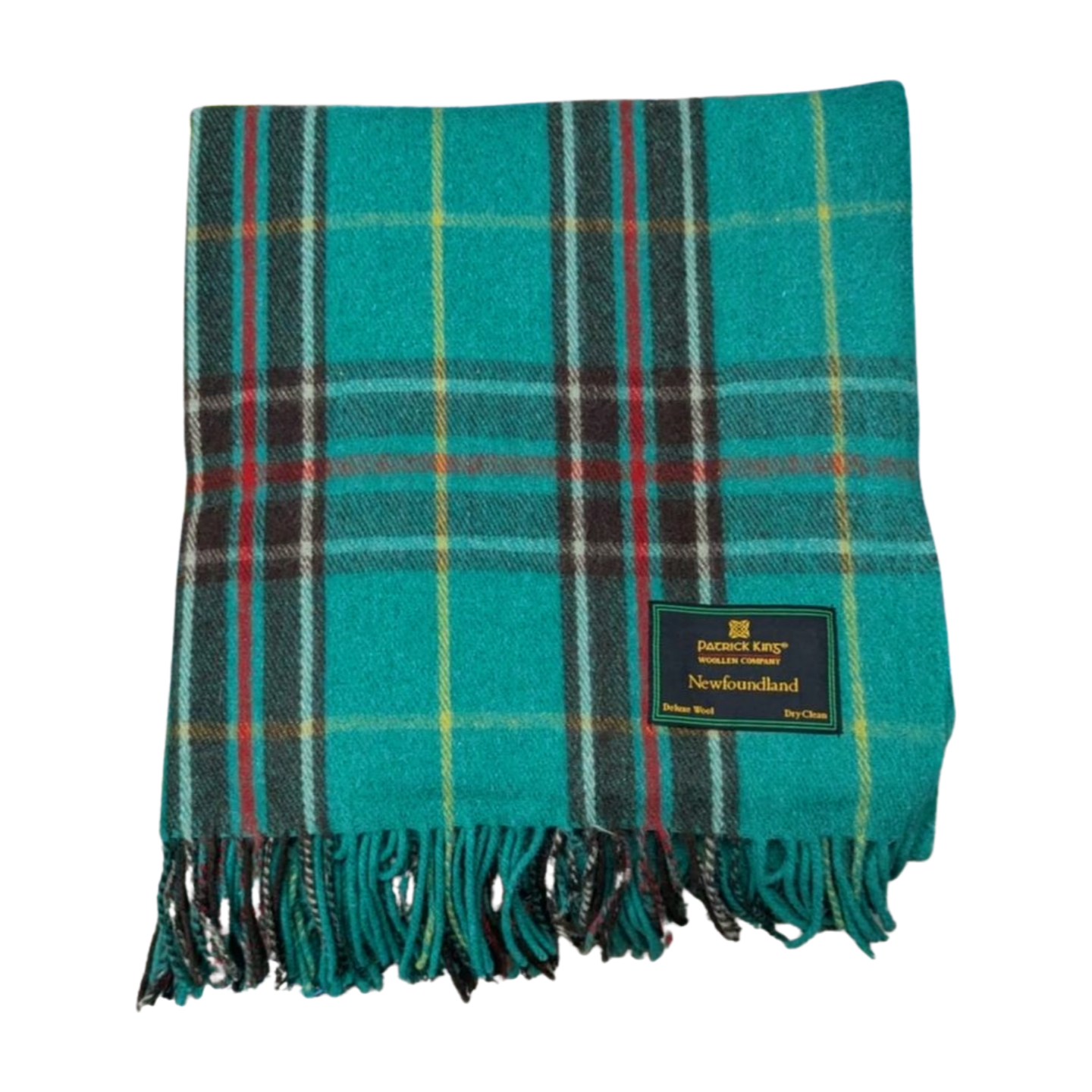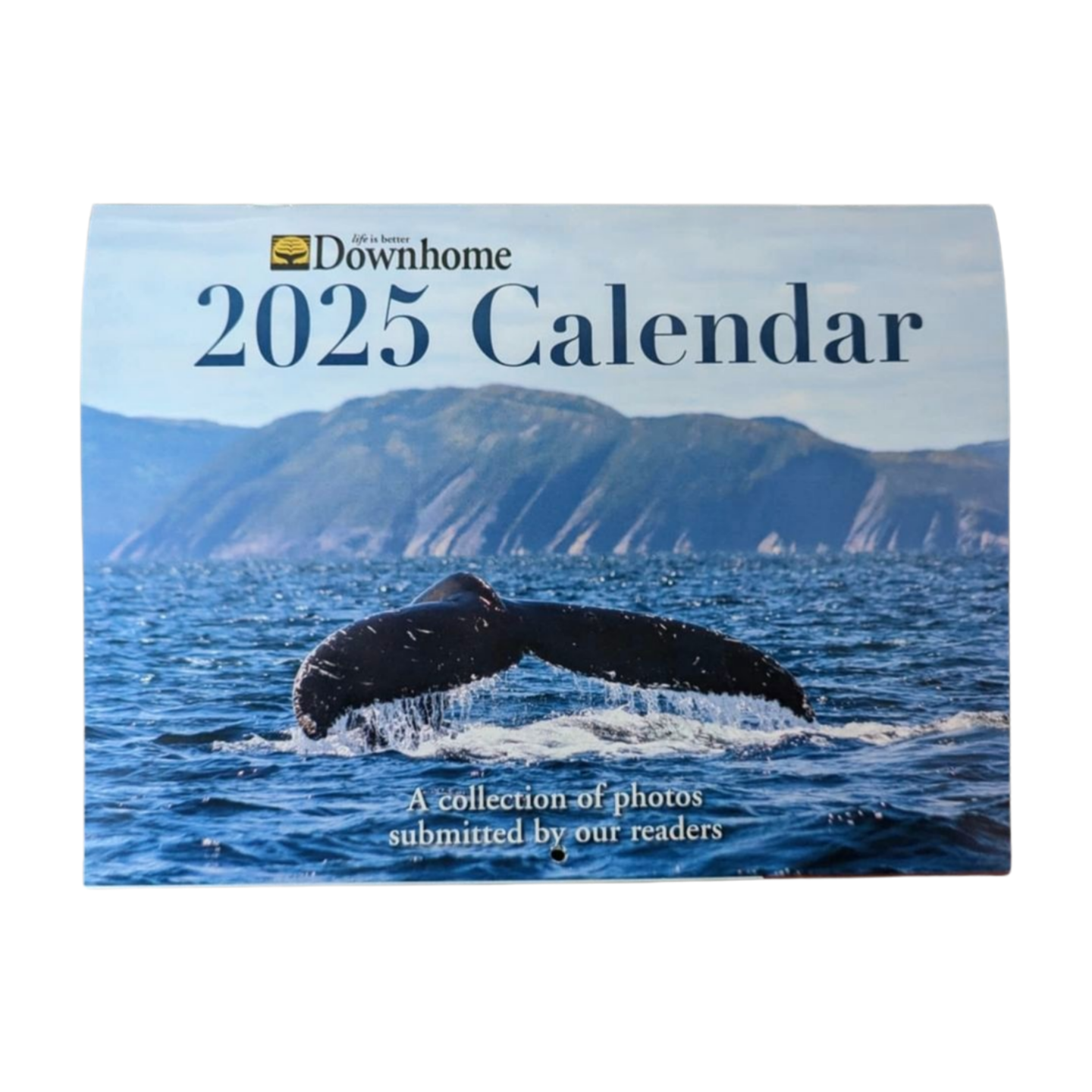The phrase tough as a two-dollar steak comes to mind when referring to commercial fisherman turned survivalist and television star William Larkham Jr. The William’s Harbour native outlasted the field of ten competitors to walk away the sole survivor of the popular reality series Alone, which dropped competitors north of the Arctic Circle to battle the elements and isolation in a race to capture the pride, glory and cool $500,000 prize.
After 84 days, William was deemed the season 11 winner, combating the internal and external pressures of grizzly country and frigid temperatures in the Mackenzie River Delta. But to ask the proud Labradorian, he was only beginning to scratch the surface of what his mind and body would tolerate.
“It was 84 days, but I was good for 105,” William says with a chuckle during a sit-down at Downhome’s headquarters in St. John’s. “I was doing ten-day cycles. I’d done a lot of hunting and trapping throughout my life. I knew if I had enough food for ten days, I’m pretty certain I’d be able to catch something within those ten days to get me towards the next ten.”
Each competitor was allowed ten items to help in their quest for food, warmth and shelter. William went the practical route, drawing on his vast experience hunting, fishing and trapping, selecting a sleeping bag, axe, saw, knife, two-quart pot, Ferro rod, snare wire, fishing line and hooks, paracord and fishing net.
“I’m rough and I think a multitool would probably break apart on me after a while just because of my nature,” he jokes. “I needed something to stand up to my roughness.”
Forgoing the lofty quest to hunt big game for more surefire methods of cultivating a food source, William thrived when many of his contemporaries struggled, though he did still suffer from the expected effects of hunger tailored to a restricted diet.
“At the end, they said I lost 75 pounds throughout the show,” he admits, sharing that he came to embrace the idea of eating every morsel of his catch of the day. “When you go on the show first, obviously you put on a little bit of weight and you’re eating good leading up to going. And so when you catch a pike it don’t look too appetizing. You eat it, but you’re picking through it, but then as time goes on and you get hungrier and hungrier at the end of it, you stick a pike in front of me, and I eat everything. I eat all the flesh, all the skin, sucked every bone clean, the vertebrae is broken apart, eat all the collagen between the bones, every soft bone I ate. When I finished with a pike at the end of it, the little pile of bones that was left was pretty small.”
And while the pursuit of food and shelter and key intangibles and the will-testing game, the isolation factor often breaks even the most hardened individual.
“That’s one thing I’d never done was solo expeditions unless it was up to my cabin by myself and stuff like that. Going off on these remote hunting trips by myself was always done in groups and that’s the way we operated. And so that was kind of an unknown for me, how I would adjust to being just completely alone in grizzly country as well for the first time there and things like that. What surprised me through it all was that the loneliness never got to me. I absolutely enjoyed every day out there. I thought I might be a wee bit nervous. I almost felt I should have been, but I slept like a little baby every night. I enjoyed it,” he admits, adding that keeping a positive mindset was key to running the table.
“To win it is very difficult. So I wanted to come out with a good experience regardless, win or lose. And so I just took this and made sure that I was going to get a good experience regardless of what happened.”
Of course, William’s predisposition towards the rough and rugged can be traced back to his roots in William’s Harbour, pre-dating modern conveniences like roads, electricity or running water.
“When I grew up in Williams Harbour at a young age, there were no roads. There was no running water. There was no electricity for the first few years. Just a one-room school with an outhouse for the bathroom and things like that. All of the island was just footpaths and the summer communities, like five kilometres away. And we used to walk down here just to go buy a bag of Hawkins cheezies and stuff. Even as kids we’d be hunting, walk up to the ponds and stuff because there’s nothing else in the community to do. So that was just our lifestyle. And so really that kind of lifestyle was just handed down and just continued right on through.”
Described by viewers as having a no-nonsense approach to the competition and a quiet strength William utilized all the tools in his metaphorical toolbox.
“I’ve been hunting and fishing off-land, I have an indigenous background. My great great grandmother was Inuit and my wife is Inuit and everything. And so all the knowledge that I learned, the different ways and everything else and I guess It was almost like grassroots,” he explains.
I never went to an all bushcraft school and no courses and stuff. Everything was just learned and handed down that way. And so to get out and compete in what a lot of people refer to as the Olympics of the survival bushcraft world or whatever, and being alone and things. And so to be able to take those skills and prove that they worked here on the stage, yeah, that was a super major accomplishment for me. I was over the moon about that.”
Now distanced from the trying ordeal, William Larkham Jr., $500,000 richer and enlivened by a once-in-a-lifetime experience of self-preservation, can be proud of his accomplishment.
“I was never going to quit. That was my thing. If I lost too much weight or you froze my toes or something or whatever or they pulled you, well I would have been okay with that, but I was just going to go and do my absolute best and I wasn’t going to tap for no reason,” he reiterates with no shortage of conviction.
“I represented myself. I wanted to do good for my family and community, for Labrador, for the province of Newfoundland and Labrador. And I wanted to do good for the Maritimes and Canada. And so I want to hopefully encourage or hopefully we see some more people from the province try it. When you go out there bring along that same mindset and I’m sure you’ll do well. A lot of people say the mental is more important than the physical. You’ve got to have the skills to do certain things. But to go long term, you really got to have the mental too. So I’d really love to see someone else in the province out there.”
For more on William Larkham Jr. follow his official social media and YouTube channel Biglandtrapper


